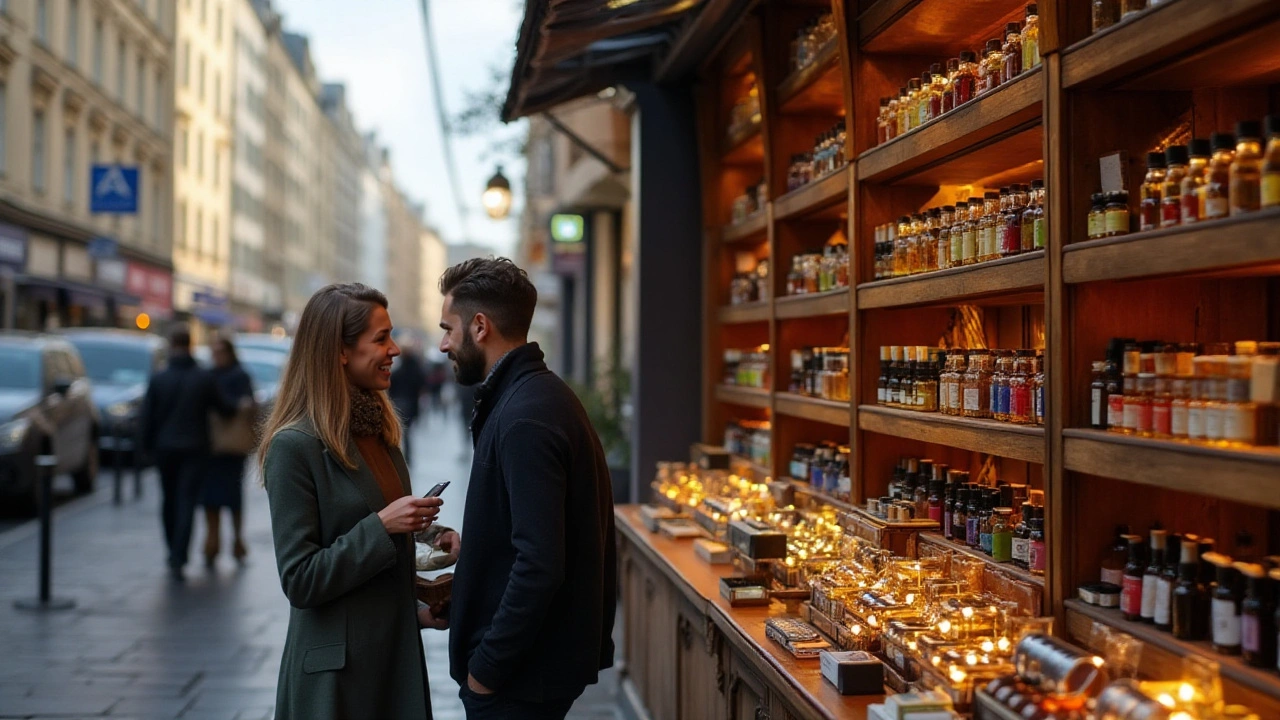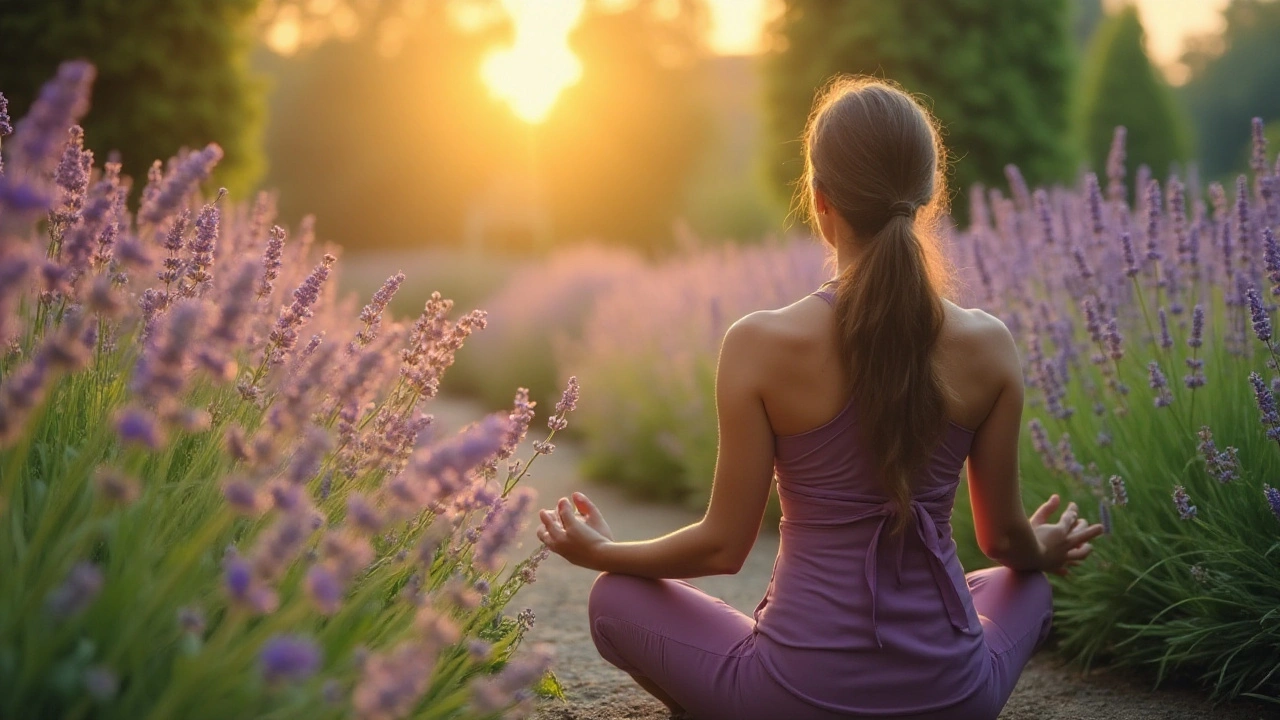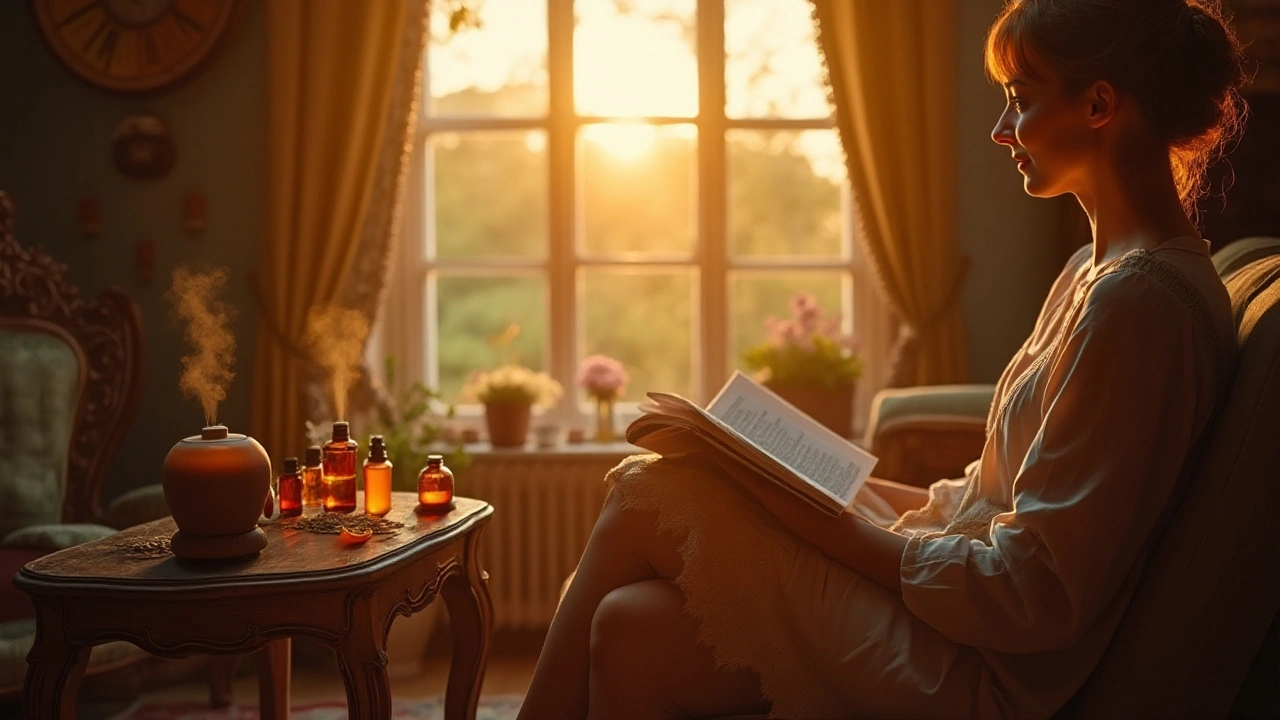Aromatherapy isn't just about pleasant scents—it's a gateway to natural healing that has been practiced across cultures for centuries. By harnessing the concentrated essences of plants, this therapeutic approach uses essential oils to tap into the body's olfactory system, impacting both mind and spirit.
Many find solace and renewed energy in this practice, as each scent offers unique benefits reaching far beyond simple relaxation. From soothing anxiety to boosting mental clarity, aromatherapy provides a toolkit for everyday well-being. Dive into the world of essential oils and discover how fragrance can truly transform your life.
- The History and Origins of Aromatherapy
- Understanding Essential Oils and Their Benefits
- How Aromatherapy Influences the Mind and Body
- Practical Ways to Incorporate Aromatherapy
- Selecting the Right Essential Oils for You
The History and Origins of Aromatherapy
The journey of aromatherapy is as rich and fragrant as the essential oils it celebrates. Tracing back over 6,000 years, its roots are deeply embedded in the practices of ancient civilizations. The earliest known records of aromatherapy use come from the Egyptians, who utilized aromatic oils in religious ceremonies, cosmetics, and notably, the embalming process. These oils, extracted through intricate processes, were highly valued commodities often used by priests and nobility. Hieroglyphics reveal that fragrant herbs were used in daily life not only for spiritual and physical purposes but as a symbol of status.
The Greeks soon followed, with figures like Hippocrates, hailed as the father of medicine, advocating for aromatic baths and massages as part of a healthy regimen. He believed in the essential relationship between a person's environment and their health, and that the fragrances of nature could have a profound impact on the body and mind. "In aroma, there is a secret connection to the greater self," one may infer from the writings of Dioscorides, a renowned Greek physician whose work on herbal medicine laid foundations that would be built upon for centuries.
In China and India, traditions involving aromatic plants ran parallel but intertwined paths. Traditional Chinese medicine included the use of aromatic herbs as a core component of holistic healthcare techniques. Meanwhile, the depth of Ayurveda in India, with its emphasis on balance and the interconnectedness of mind, body, and spirit, found a natural ally in the therapeutic qualities of scents extracted from plants. Both cultures emphasized that their respective aromatic remedies were tailored towards preventing ailments and maintaining equilibrium within the body's systems.
The term 'aromatherapy' itself was coined much later, in the 20th century, by René-Maurice Gattefossé, a French chemist who accidentally discovered the healing potential of lavender oil when he used it to treat a burn. His subsequent research, along with that of other prominent scientists like Dr. Jean Valnet, helped to cement aromatherapy as a field of study and practice in its own right. Gattefossé's groundbreaking work paved the way for modern understanding of how essential oils could influence both physiological and psychological health. "Scents are the language of another world," he noted, acknowledging the bridge between modern science and ancient wisdom.
The journey of aromatherapy continues to evolve, informed by cultures past and present, as it enters mainstream wellness therapies globally. It captures the imagination of both practitioners and enthusiasts who seek natural solutions for health challenges, promoting a holistic approach that touches every aspect of life. Today, essential oils are more accessible than ever, and as research continues to unveil their potential benefits, the ancient art of aromatherapy proves to be as relevant as it has been intriguing throughout history.
Understanding Essential Oils and Their Benefits
Essential oils have long fascinated people with their potent healing properties, capturing the very essence of plants. These concentrated liquids are extracted from leaves, flowers, roots, and even bark through meticulous processes like steam distillation or cold pressing. Their purity and potency make essential oils a powerful ally in the quest for weller. When delving into their world, one quickly encounters a dazzling array of oils, each with unique aromas and benefits that cater to different needs. For instance, lavender oil is renowned for promoting relaxation and improving sleep quality, while peppermint oil invigorates the mind and aids digestion. These oils contain unique chemical components, such as terpenes and esters, which contribute to their specific therapeutic effects.
The versatility of essential oils allows them to be used in various ways. Inhalation is perhaps the most common method, where the aroma is breathed in through a diffuser or steam inhalation, directly influencing the limbic system of the brain which deals with emotions and memories. This explains why certain scents can evoke powerful feelings or memories. Topical application is another popular use, where oils are diluted with a carrier oil, like jojoba or almond oil, and applied to the skin. This method leverages the skin's ability to absorb active compounds, allowing essential oils to work their magic on muscles, joints, and skin conditions.
"Essential oils can play a vital role in maintaining a balanced lifestyle," notes Dr. David Stewart, a prominent researcher in aromatherapy."Their ability to support both mental and physical health is backed by years of study and application."
Many choose essential oils for the emotional support they provide. Studies have shown that specific oils like chamomile can reduce anxiety, while ylang-ylang has mood-enhancing effects. It's interesting how essential oils interact with the nervous system, often working swiftly to alleviate stress or uplift the spirit. Given their potency, it's crucial to understand how to use them safely. This means properly diluting the oils and being aware of any potential allergies or skin sensitivities. Knowing the correct usage is important to reap the full benefits without any adverse effects. Blending oils can also enhance their effects, resulting in a synergy that isn't present in single oils alone.
The science behind aromatherapy continues to evolve, with research indicating promising results. For example, a 2013 study published in the Journal of Alternative and Complementary Medicine found that a blend of lavender, cedarwood, and frankincense significantly improved sleep quality in patients with insomnia over an eight-week period. Such findings underscore the potential of essential oils not only as a complementary therapy but also as a mainstream alternative in healthcare. For newcomers, starting with a basic collection of essential oils is recommended. A simple set can offer a range of benefits: calming lavender, energizing citrus, purifying tea tree, and balancing eucalyptus. As users become more familiar with their effects, they can expand their collection to include more exotic or specialized oils.

How Aromatherapy Influences the Mind and Body
Aromatherapy's influence on the mind and body is a harmonious blend of science and traditional wisdom. When inhaled, the molecules of essential oils travel straight to the brain's olfactory system, igniting responses in the limbic system – the area responsible for emotions and memory. This unique pathway enables essential oils to directly affect mood, stress levels, and cognitive functions. For example, lavender oil, known for its calming properties, has been shown to lower anxiety and promote relaxation. A study published in the Journal of Alternative and Complementary Medicine found that inhaling lavender reduced stress levels among participants after just fifteen minutes, highlighting its powerful role in emotional regulation.
Beyond emotions, these plant extracts offer physical relief as well. The body's autonomic nervous system can benefit from scents, as certain aromas have been linked to decreased heart rate and blood pressure. The citrusy aroma of bergamot, often used in aromatherapy, is renowned for its uplifting effects and has been documented to possess anti-inflammatory and antibacterial properties. This not only gives it a mood-enhancing capability but also fortifies the body's defenses against ailments. Dr. Jane Buckle, an expert in clinical aromatherapy, once remarked,
"Aromatic molecules can cross the blood-brain barrier, essential oils can have a profound impact on the brain's biochemistry."
The versatility of aromatherapy extends into the realm of sleep and pain relief too. Sleep disorders have been extensively studied concerning essential oils, with chamomile and sandalwood being top contenders in promoting restful slumber. These oils work by encouraging the production of neurotransmitters like serotonin, which help induce calm and relaxation. In a similar vein, pain, both chronic and acute, often finds relief through aromatic applications. Studies suggest that peppermint oil, when applied topically or inhaled, can alleviate headaches and tension due to its muscle-relaxing properties. An article in the American Journal of Medicine indicates that patients experiencing chronic pain reported notable improvement after consistent aromatherapy sessions.
To delve deeper, specific oils target distinct mind-body connections and can be customized to individual needs. For mental clarity and focus, rosemary oil is a popular choice, believed to enhance concentration and memory by stimulating the brain. Meanwhile, for skin care and healing, the anti-inflammatory benefits of tea tree oil cannot be overstated. Historical records detail its use by indigenous peoples for treating skin infections and promoting wound healing. Aromatherapy not only nurtures emotional well-being but also underlines the connection between mind and body, showcasing that harmony between the two is achievable through the subtle power of scent.
When considering the broader benefits of incorporating essential oils, it's crucial to recognize their potential as a supportive therapy alongside conventional treatments. While not a replacement, aromatherapy serves as a complementary strategy that enhances lifestyle quality. Incorporating it into daily routines—be it a calming evening bath with a few drops of essential oil or diffusing scents during meditation—opens up a pathway to physical and emotional serenity. To make the most of these oils, choosing high-quality, unadulterated products is vital, ensuring that all therapeutic benefits are retained.
Practical Ways to Incorporate Aromatherapy
Integrating the art of aromatherapy into your daily routine doesn’t require a complete lifestyle overhaul. Instead, it’s about finding those moments in your day where you can introduce the soothing presence of essential oils. One of the simplest methods is through the use of an essential oil diffuser. These devices disperse the natural fragrance throughout the room, creating an ambiance that can uplift or calm your senses, depending on the oil chosen. For those new to this, starting with oils like lavender for relaxation or peppermint for a refreshing boost can be quite effective. Some people enjoy diffusing oils while meditating or doing yoga, as it enhances focus and presence in these reflective practices.
Another popular way to incorporate aromatherapy is by adding essential oils to bathwater. The steam from warm water helps release the fragrance, providing a multi-sensory spa-like experience right at home. Imagine soaking in a tub with a few drops of eucalyptus oil; the experience can ease muscle tension and clear respiratory passageways. If baths aren't your thing, consider making a homemade body scrub or lotion with oils like chamomile or rose for a tantalizing skin treat.
For on-the-go purposes, making a personal roll-on blend is an excellent way to access the benefits of aromatherapy wherever you are. Combine a few drops of your favorite essential oils with a carrier oil in a small roller bottle, which you can apply to your wrists, temples, or neck when in need of a quick refresh or mood adjustment. It’s both convenient and personal, allowing you to create a signature scent that travels with you.
If you prefer a minimalist approach, simply applying a few drops onto a pillow before sleep can transform your nighttime routine. Studies have shown that scents like lavender and chamomile can promote deeper, more restful sleep. A good night's rest has a profound impact on overall health, making this a worthy addition to your bedtime ritual. Consider keeping a journal by your bed to note the effects different oils have on your sleep patterns.
Finally, consider crafting your own natural cleaning products infused with essential oils. Not only do they leave your home smelling divine, but oils like lemon and tea tree have natural antibacterial properties that can enhance cleanliness. Mixing essential oils with vinegar and water makes a simple yet effective cleaner for various surfaces. Remember to test on a small area first, to ensure compatibility with your materials.

Selecting the Right Essential Oils for You
Choosing the right essential oils for your individual needs can sometimes feel like navigating through a fragrant forest of possibilities. With countless oils available, each boasting a myriad of benefits, the task may seem daunting at first. However, understanding the unique properties and uses of different oils can make this journey an exciting exploration of discovery. It helps to start by identifying the specific results you are seeking, whether it's relaxation, energy boosting, or skin healing. Engaging in research and consulting certified aromatherapists can provide more personalized recommendations. Pay attention to the source and quality of the oils, as purity can greatly influence their effectiveness and safety.
For those seeking relaxation and stress relief, popular choices include lavender, chamomile, and bergamot. These oils are known for their calming and soothing properties. In contrast, peppermint and eucalyptus can invigorate and refresh, making them great for those in need of an energy uplift. Rose and ylang-ylang are revered for their abilities to enhance mood and create a sense of happiness. Consider your preferences—some people find joy in floral scents, while others prefer earthy or citrus notes. Trust your gut and let your nose guide you as you explore.
"In the world of aromatherapy, personal preference plays a crucial role," advises Dr. Jessica Robertson, a leading aromatherapy expert. "Listen to your body and choose scents that resonate with your inner self for the best results."
It's crucial to bear in mind any potential allergies or sensitivities when selecting oils. A patch test is a prudent step before using any new product extensively. Just apply a small amount of diluted oil on your skin and wait for 24 hours to observe any reactions. Additionally, oils should always be diluted appropriately before applying them to the skin. The rule of thumb is to aim for a 2-3% dilution rate for normal skin, further reducing it for children or those with sensitive skin. Aside from personal care, essential oils can also be incorporated into household cleaning, adding a natural, pleasant fragrance to your living space. The key lies in understanding your personal preferences and experimenting to discover what blends work best for you.
To do so successfully, consider keeping a journal of your experiences with varying oils and blends. This will allow you to track which combinations yield the most favorable results in terms of both psychical and emotional responses. By experimenting and noting your reactions, you gradually refine the selection process to tailor-fit your unique needs. Soon enough, your curated collection of essential oils will serve as a personal apothecary of wellness and comfort. By taking your time to explore and respect your own preferences and needs, you will ensure that your aromatherapy practice remains both effective and delightful.
The Science Behind Essential Oils
Understanding the composition of essential oils can also guide your choices. Essential oils are made up of highly volatile compounds collected through various processes such as distillation or cold-pressing. These natural elements have been demonstrated to have biological effects, impacting human physiology and emotional states. Scientific studies have identified terpenes, esters, ketones, and aldehydes as some of the components responsible for these effects. Lavandula angustifolia, for instance, contains linalool and linalyl acetate, which are recognized for their calming properties. When inhaling or applying essential oils, these molecules quickly penetrate cell membranes and can even cross the blood-brain barrier, tapping into the body's inherent healing processes.
Essential oils not only enrich your physical environment but also catalyze a positive shift in your inner landscape. It's often the harmony between scent and individual that unlocks the potential benefits of aromatherapy. Embracing this practice with an open mind can transform your sensory experience, allowing you to create a sanctuary of wellness both within and around you. By approaching this selection process with patience and curiosity, you will find essential oils that resonate with your unique path of healing and harmony. Take your time, explore freely, and most importantly, enjoy the aromatic journey.







